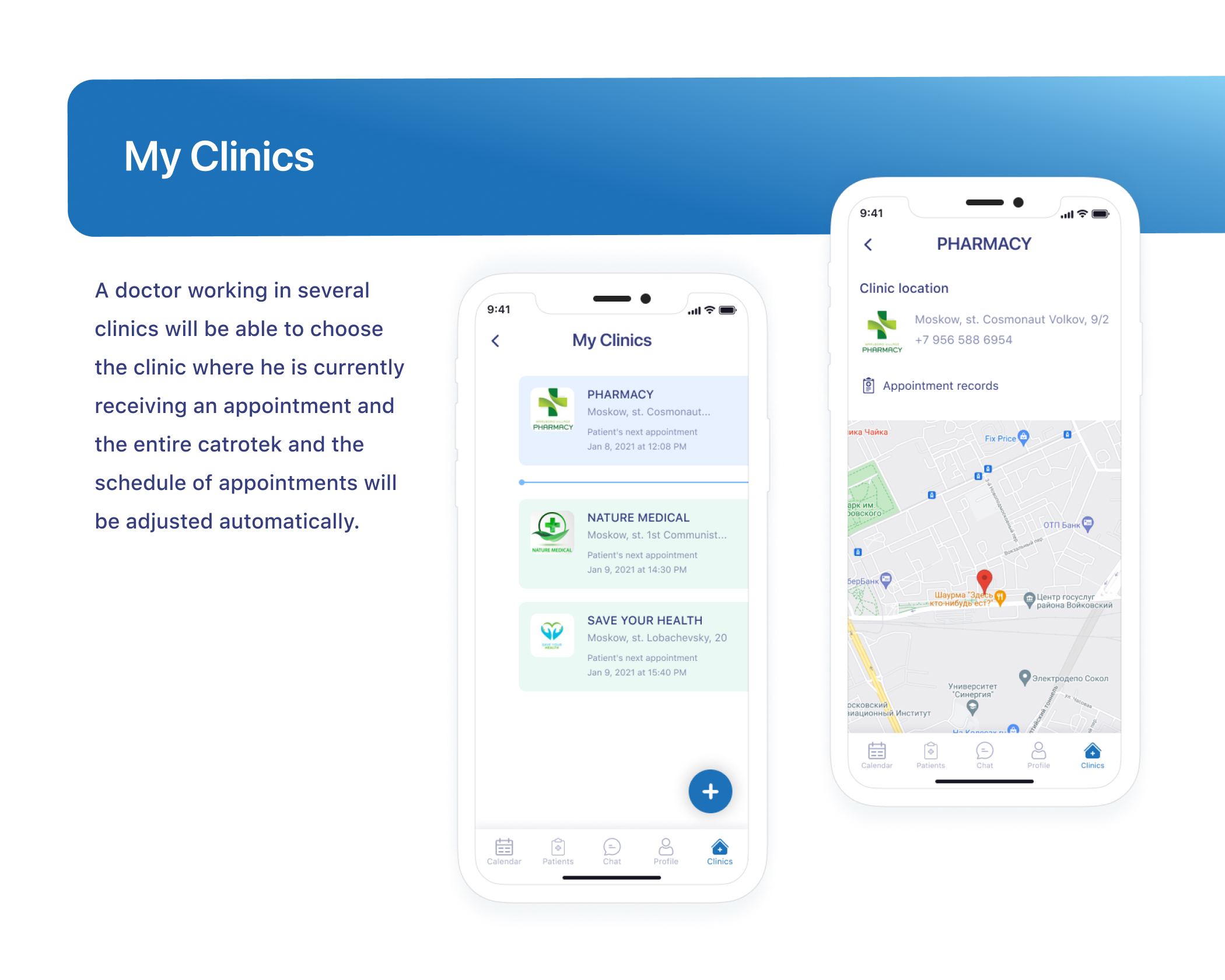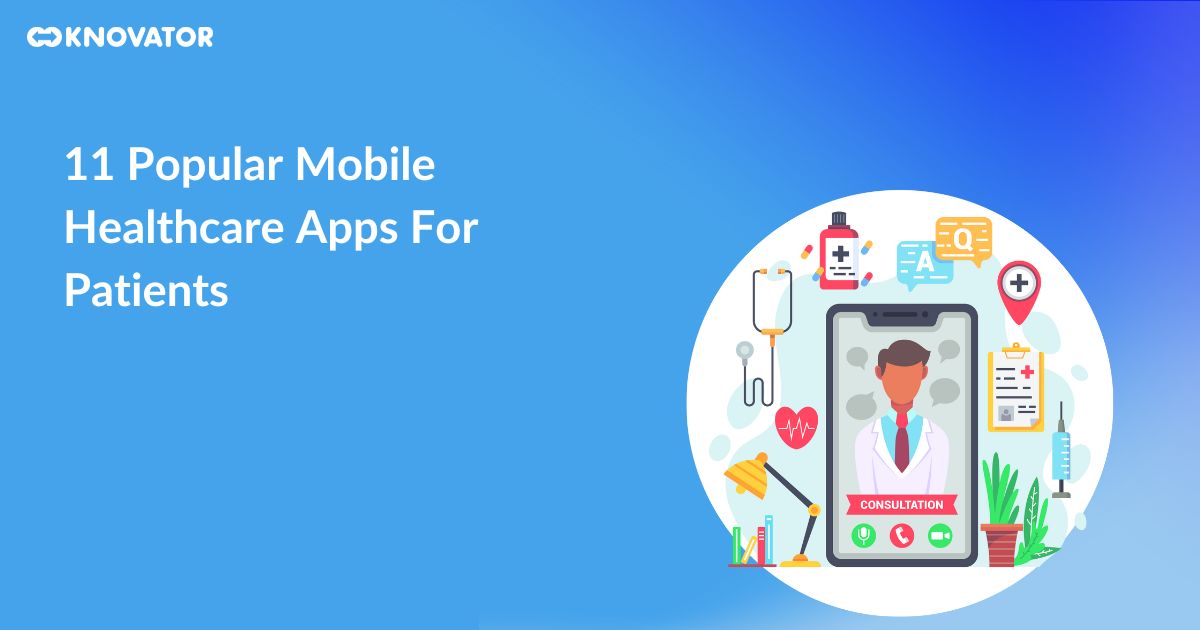Best Practices for Establishing a Mobile App for Clinics That Fulfills Patient Needs
How a Mobile Application Can Boost Efficiency in Your Facility
The assimilation of a mobile app into your center's procedures provides an encouraging opportunity to boost general efficiency. By enhancing visit scheduling, boosting patient interaction, and assisting in document management, such an app can transform everyday operations. Patients gain from practical access to their schedules, while personnel can take pleasure in real-time updates to person info. However, the influence of these features expands past simple benefit; it affects the quality of treatment supplied. As we check out the diverse benefits of a mobile app, numerous essential considerations arise that warrant further exam.
Streamlined Appointment Scheduling

Mobile applications enable clients to book, reschedule, or terminate visits at their comfort, removing the demand for phone telephone calls and decreasing delay times. By incorporating real-time schedule of service providers, clinics can reduce spaces in the routine, maximizing resource usage.
Moreover, automated reminders sent out through the app can reduce no-show rates, ensuring that appointments are kept and that time is made use of efficiently. The information collected through the app can also help facilities assess peak consultation times, permitting far better staffing decisions and improved service delivery.
On top of that, a mobile application cultivates a smooth connection between people and facility personnel, enhancing communication concerning appointment adjustments or crucial center updates. In general, implementing a mobile application for appointment organizing not only enhances functional effectiveness however additionally adds to a much more favorable experience for both clients and healthcare providers.
Improved Person Communication
Through the usage of a mobile app, centers can dramatically improve patient interaction, promoting an extra appealing and transparent health care experience. A devoted mobile platform enables centers to improve communication channels, permitting people to conveniently access essential details concerning their treatment.
With attributes such as protected messaging, people can interact directly with health care providers, promoting timely feedbacks to questions and issues. This prompt access aids to reduce stress and anxiety and makes sure that patients really feel sustained throughout their healthcare journey. Additionally, mobile applications can give people with real-time updates about their consultations, treatment plans, and any type of adjustments in facility hours, therefore minimizing confusion and improving total complete satisfaction.
Additionally, the capability to send out press alerts regarding reminders for drug, upcoming consultations, or health and wellness ideas boosts person engagement and adherence to treatment plans. This proactive method not just cultivates a sense of duty among clients yet also promotes better health outcomes.
Efficient Record Management
Efficient record management is necessary for facilities intending to enhance their procedures and improve client care. A mobile application can significantly improve the process of maintaining and accessing individual documents, making certain that doctor have timely access to critical details. By digitizing documents, clinics can eliminate the inadequacies linked with paper-based systems, such as lost documents, taxing searches, and troublesome filing procedures.
Mobile applications permit real-time updates, guaranteeing that patient details is constantly current and exact. news This immediacy reduces the chance of errors that can develop from obsolete records, consequently improving individual safety and therapy results. Additionally, improved information safety and security gauges inherent in mobile applications safeguard delicate person details, making certain conformity with guidelines such as HIPAA.
With very easy access to electronic health and wellness records (EHRs) with a mobile app, clinicians can spend much less time managing documents and even more time concentrating on patient treatment. This change to electronic document administration not just boosts performance yet also enhances the total patient experience by minimizing delay times and streamlining visit organizing. Inevitably, effective record management through mobile innovation is a basic component of a modern, effective facility.
Boosted Staff Collaboration
In today's hectic medical care setting, enhanced team cooperation is crucial for supplying premium person care. A mobile application can function as a main center for interaction, permitting healthcare professionals to share details and updates in real-time. This immediacy cultivates a culture of team effort, where nurses, doctors, and administrative personnel can collaborate individual care better.
By making use of features such as instantaneous messaging, shared calendars, and task management tools, clinics can enhance operations and lower the feedback time for client demands. A registered nurse can rapidly alert a doctor about a client's change in problem, guaranteeing that prompt treatments are made. The capacity to gain access to person data remotely allows staff to remain notified, no matter of their area within the facility.
The mobile application likewise makes it possible for the sharing of best sources and practices, empowering personnel to find out from one another and boost their abilities (mobile app for clinics). Inevitably, improved staff collaboration not just boosts operational efficiency yet additionally adds to a more natural workplace, which is vital for maintaining high standards of client treatment. By leveraging modern technology, facilities can produce a collaborative environment that prioritizes teamwork and communication amongst health care experts
Data-Driven Decision Making
Utilizing data-driven choice production is crucial for facilities intending to enhance patient results and operational efficiency. Mobile applications equipped with navigate to this website durable information analytics capabilities enable medical care experts to gather, analyze, and interpret person information efficiently. This encourages clinics to make enlightened choices based upon real-time understandings, leading to enhanced treatment shipment.

Data-driven decision production also visit this page facilitates positive administration of chronic conditions. By monitoring patient adherence to therapy strategies and engagement levels via mobile applications, healthcare companies can intervene prompt, potentially protecting against problems and health center readmissions.
Eventually, incorporating information analytics into clinic procedures not only fosters a culture of continual enhancement yet also aligns with the growing need for customized, patient-centric care. This tactical technique makes certain that clinics are well-equipped to adjust to progressing medical care landscapes while preserving high requirements of solution.
Conclusion
The combination of a mobile application within a center can result in considerable renovations in functional efficiency. By streamlining appointment scheduling, enhancing client communication, and helping with effective record monitoring, centers can decrease no-show prices and foster openness. Enhanced personnel cooperation and data-driven decision-making capacities contribute to top notch person treatment. Eventually, the adoption of mobile technology functions as a vital device in updating health care practices, guaranteeing that both providers and people take advantage of boosted service distribution.
Clients benefit from hassle-free access to their timetables, while personnel can delight in real-time updates to client information. Mobile applications can offer patients with real-time updates regarding their consultations, treatment plans, and any kind of modifications in clinic hours, thus reducing complication and improving total fulfillment.

By simplifying appointment scheduling, improving client interaction, and facilitating reliable document monitoring, clinics can decrease no-show rates and foster transparency.